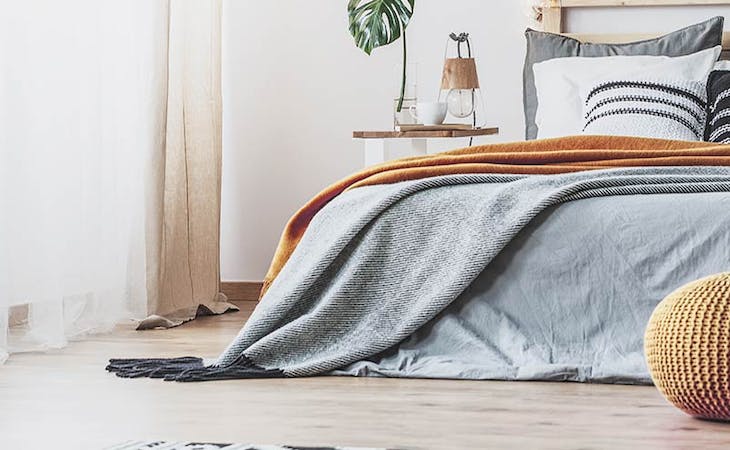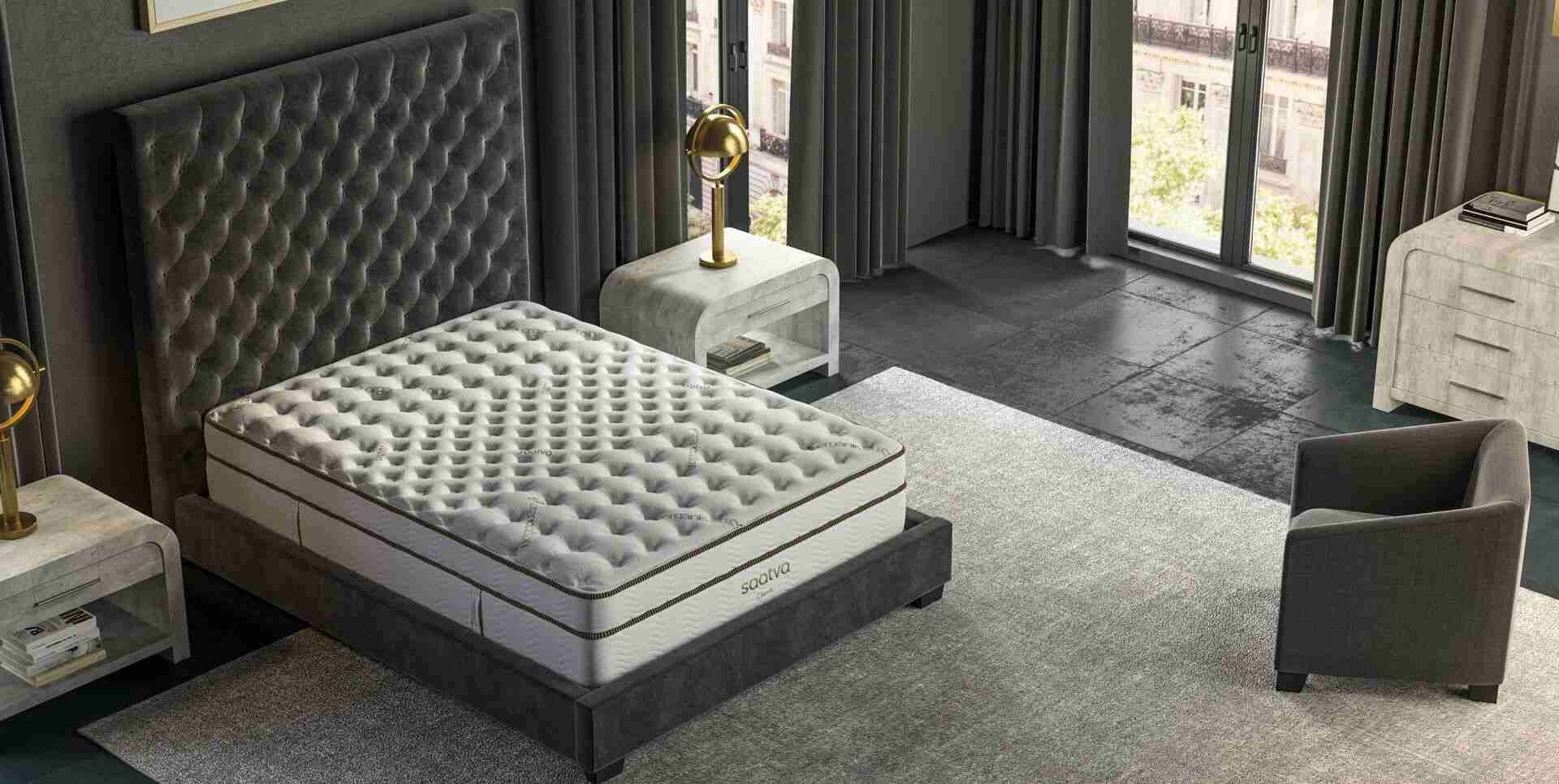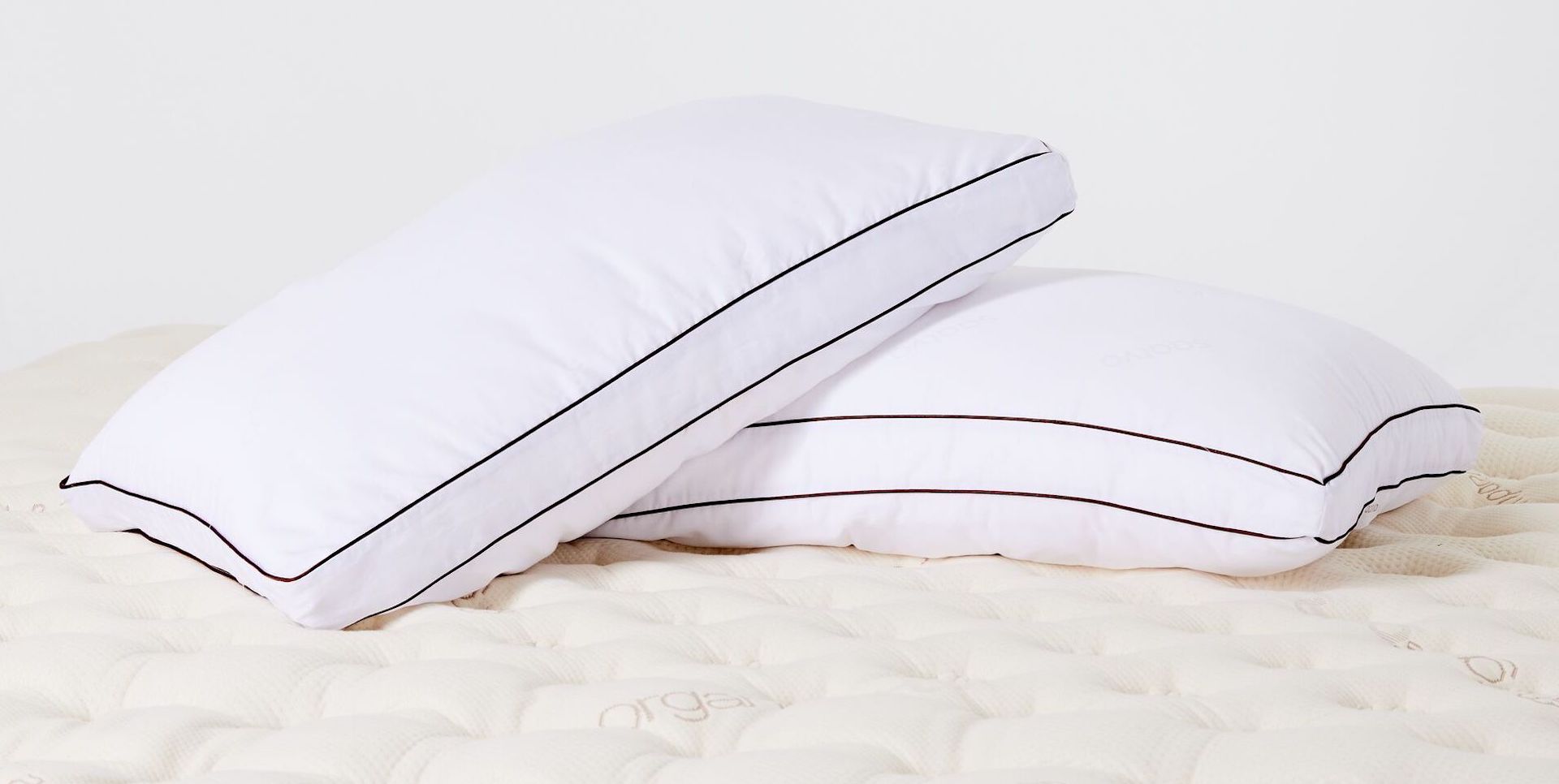When it comes to the home redo wish list, the bedroom is usually last on the agenda.
“So many people who spend tens of thousands of dollars remodeling their kitchens and bathrooms—and, by the way, replace their running shoes every six months—are sleeping on an old mattress, pillows, and sheets,” says Terry Cralle, RN, certified clinical sleep educator.
This is despite the fact that we spend more time in the bedroom than anywhere else in the house. And when we do make upgrades, it pays off: An Oklahoma State University study found that people who replaced beds that were at least five years old were rewarded with improved sleep quality and efficiency. Better sleep, in turn, can improve your mental and physical health, your job performance, and your relationships. So there are big benefits to moving the most personal space in your house up the to-do list.
When to replace every item in your bedroom
If you’re not ready for a full-scale bedroom redo, here’s a guide to when to make simple upgrades that will go a long way toward improving your sleep.
Mattress
If you can’t get comfortable on your mattress—or you start waking up with back pain—either the mattress has changed or your body has, says Michael Magnuson, founder of the mattress review site goodbed.com. “And it doesn’t really matter which,” he adds, “because you’re not getting what you need from the mattress anymore.” Another telltale sign that it’s time for a new mattress, according to the Better Sleep Council, is if you experience a better night’s sleep elsewhere, such as in a friend’s guest room or at a hotel.
Mattress life expectancy: 10 years—or as little as five years if you’re over 40 years old, according to Consumer Reports. The Better Sleep Council suggests replacing mattresses every seven years, regardless of your age. (Here are more ways to tell whether it’s time to replace your mattress.)
Pillow
It’s time for a new pillow when the old one no longer has loft (fluffiness), isn’t maintaining your head at a comfortable position, or has begun to smell, says Keith Cushner, of the mattress review site tuck.com.
Pillow life expectancy: One to two years, according to the National Sleep Foundation. You can double this by using a pillow cover, say the experts at Prevention. One way to check is to put your pillow to the spring-back test: Fold it in half lengthwise and hold it like that for 30 seconds. If it doesn’t go back to its original shape when released, it’s time for a new pillow.
Related: Why you should wash your pillow (and how to do it)
Comforters and blankets
It’s time to toss a comforter that is leaking filling, has become limp and flat, or has developed lumps where the filling has shifted. Move blankets into backup rotation and buy new primary ones when they become frayed, torn, stained, or they start pilling excessively.
Comforter and blanket life expectancy: Depending on material and care, a comforter can last 15 years or more, a blanket five to 10 years. For best longevity, experts recommend washing your comforter two or three times a year. Real Simple recommends setting the machine on gentle or delicate and using cool or warm water. Dry the comforter on low heat, placing a few tennis balls into the dryer to prevent it from getting lumpy. To extend the life of a comforter, encase it in a duvet cover that is easily washable. (According to a recent Saatva survey, the majority of people would rather clean all the toilets in their home than wash and reassemble their duvet.)
Sheets and pillowcases
Washing sheets and pillowcases at least weekly prolongs their useful life, which generally ends when they become frayed, stained, or faded. (Here are creative ideas for repurposing your old sheets.)
Sheet and pillowcase life expectancy: Two years, according to the International Fair Claims Guide for Consumer Textile Products.
Related: What you need to know before buying new sheets
Bed frame
When your bed frame—that is, the furniture that supports the mattress and, if you use one, the box spring or foundation—starts creaking, splintering, or sagging, it’s time for something new. Without adequate support, your mattress won’t perform as well or last as long.
Bed frame life expectancy: Wooden bed frames with slats typically last 7-10 years if properly maintained, while metal bed frames last 15 years or more.
Carpet
Get rid of carpet once it has become stained, it shows wear in areas where you walk and stand the most, its fibers start losing their texture, or it begins to shed. Other indicators include color loss, fading, matting, ripples, wrinkles, and lack of padding support, according to Angie’s List. Of course, you don’t necessarily have to replace the old carpet with new carpet-wood floors are easier to keep clean, especially for people with allergies.
Carpet life expectancy: Low-cost, low-grade carpet may last only one to five years; medium-grade carpet is generally good for five to 15 years and the best carpet lasts 15 to 25 years, according to doityourself.com.
Window treatments
Once they become stained, faded from the sun, misshapen, or frayed, it’s time for new curtains, drapes, or blinds.
Window treatment life expectancy: Three to five years, according to the International Fair Claims Guide for Consumer Textile Products. The pros at Glamour suggest washing curtains at least twice a year since they’re exposed to sunlight, dust, and odors that can degrade them.
Smoke detectors
If the alarm doesn’t sound when you press the test button on a detector, replace it—and no matter what happens when you press the button, always replace them once they reach the decade mark.
Smoke detector life expectancy: Replace the batteries every six months and the detectors every 10 years, says the National Fire Protection Association.
FAQs
How often should you update your bedroom?
You don’t have to do a full-scale bedroom redo if you enjoy the way your space looks and feels, but you can make simple upgrades that will go a long way toward improving your sleep. These changes don’t have to be made all at once as some objects in your room last longer than others. That said, be on the lookout for a back pain-inducing mattress, smelly pillows, a lumpy comforter, faded sheets, a saggy bed frame, or a stained carpet and replace those as needed.
What happens if you don’t change your pillow?
If you don’t change your pillow, you risk sleeping every night on a surface with built-up dead skin cells, skin oils, saliva, sweat, and dust mites and their feces. These particles can trigger allergies, breathing problems, and asthma in people who are allergic to them as well as bring stains and odors with them.
If your mattress isn’t in need of replacing just yet but could still need a refresh, try these tips for cleaning your mattress.







